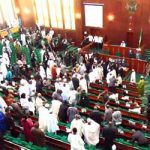The Lagos Chamber of Commerce and Industry (LCCI) wants the National Assembly to ensure the passage of a competitive Petroleum Industry Bill (PIB) that will make Nigeria an investment destination of choice.
This was disclosed in a statement by the LCCI Director General Muda Yusuf issued on Sunday in Lagos.
Mr. Yusuf said the LCCI was fully in support of government’s efforts to drive industry reform through a new PIB, which is currently before the National Assembly.
“The Lagos Chamber urges the National Assembly to put in place a law that will promote a more effective and efficient governance, administration, host community development and fiscal framework for the petroleum industry.
“A competitive Bill will help to preserve the integrity of the existing projects, whilst also encouraging future growth of production, and make Nigeria an investment destination of choice,” he said.
According to him, Nigeria, with the largest oil and gas reserves in Africa, has huge untapped potential to achieve its economic development goals, including gas-to-power ambitions.
The LCCI DG noted that despite having the largest reserves in Africa, Nigeria only receives four per cent ($3 billion) of $75 billion, invested in the continent between 2015 and 2019.
He said this underscored the need to create a competitive environment to attract investment to the oil and gas sector.
While adding that the key objectives of the PIB 2020, among many others, include reforming the institutional and fiscal framework and developing Nigeria’s gas sector.
Yusuf said it was also aimed at creating a framework to support the development of host communities and foster sustainable prosperity, as well as bringing in new investments to grow the country’s production capacity.
He said: “However, some of these improvements appear insufficient to deliver the true value to Nigeria, which the bill aims to achieve.
“Some provisions in the bill could adversely affect the growth of the industry and the overall economy.
“We firmly believe that based on constructive co-operation between the Nigerian Government and other stakeholders, host communities and Industry, the objectives of reform can be successfully met.”














